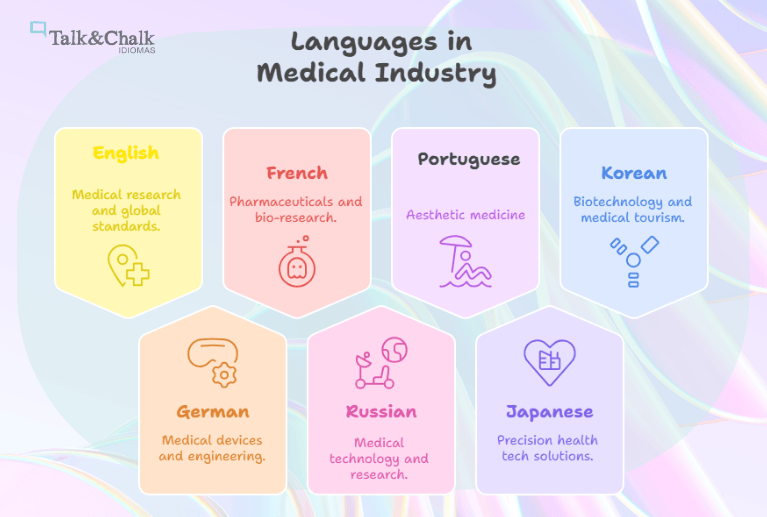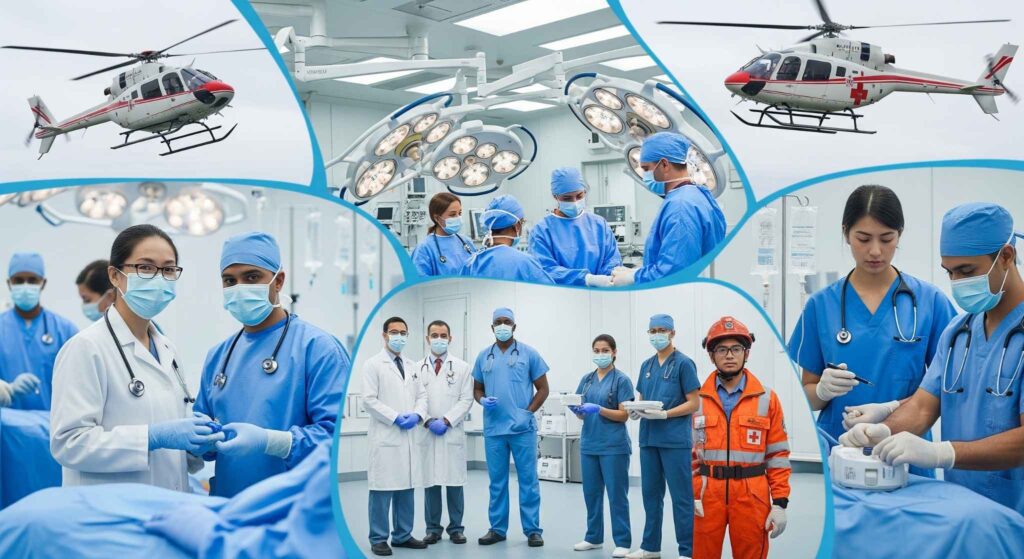In medicine, language is more than a communication tool — it’s a gateway to research, collaboration, and patient care. As the medical industry becomes increasingly international, speaking the right language gives professionals access to clinical trials, pharmaceutical developments, medtech hubs, and healthcare policies across the world. Languages in the Medical Industry
Here are seven key languages shaping the medical landscape:
English – The universal language of medical research, scientific publications, and international health standards (e.g., WHO, FDA, NICE).
French – Widely used in pharmaceuticals, bio-research, and francophone Africa’s public health systems.
Portuguese – Especially relevant in aesthetic medicine, medical tourism in Brazil, and healthcare innovation in Portuguese-speaking Africa.
Korean – A leader in biotech innovation, regenerative medicine, and cutting-edge wellness tourism.
German – Essential in medical device development, biomedical engineering, and hospital technology in Europe.
Russian – Key for medical technology, innovation in cold-region medicine, and strong domestic research networks.
Japanese – Globally respected for precision medical technology, including robotics, imaging systems, and diagnostics.


